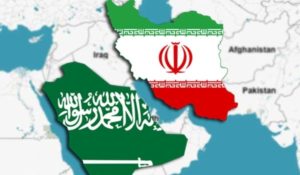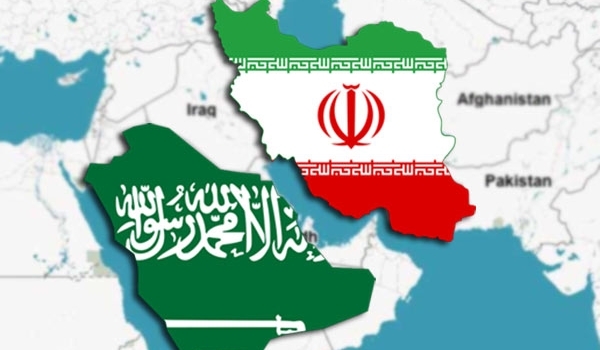One of the accepted pieces of conventional wisdom on ending the Syrian conflict is there is going to have to be some sort of understanding between Saudi Arabia and Iran. There were indications Syria and Iran were capable/ready to sit at the table. Unfortunately, the opening days of 2016 has seen that lovely dream destroyed with Saudi Arabia executing dissident Shi’a cleric, Nimr al-Nimr. The Iranian government made several fiery statements and then not-so-shockingly, a mob set fire to the Saudi Embassy in Tehran. The Iranians said they were sorry but the Saudis were having none of it and broke off diplomatic relations, followed by several others allies. Instead of talks of rapprochement, people are wondering if a regional war is imminent?
Why the change?
I think there are two things occurring which have brought matters to a head: The internal dynamics of Iran and the dire strategic situation of Saudi Arabia.

The first thing is the internal struggle within Iran. The Iranian government, at least the reformist side of it, sees themselves on the verge of national resurgence. They cashed in their nuclear weapons program (at least the most visible pieces of it) in order to get sanctions relief, unfreezing of funds, and the possibility of rejoining the international community. The Iranian population wants this outcome and should they realize the expected gains, Iran will quickly resume their historically dominant position in the region by virtue of their demographics, geography, and military capability.
The more reactionary elements of the Iranian ‘deep state’ (The revolutionary guard, the more conservative clerics, etc) have a different vision. They see themselves in a life or death proxy war with their mortal Sunni enemies, particularly the Saudis. They are well aware of the zero-sum nature of Persian politics – if the reformists get their way and Iran ‘normalizes’, it is going to seriously erode their power. They have been fighting the struggle since 1981 when Iraq invaded and they have been pretty damn successful in advancing their agenda, particularly in Iraq and Lebanon. They don’t need anyone ruining it for them (or their bank accounts and control of Iranian commerce). I don’t know if they ordered the burning of the Embassy, but they sure recognized it as an opportunity to rub in the reformists face and I am sure they are personally delighted to do away with the pretense of negotiating anything with their enemies, the Saudis.
The Saudis on the other hand are in an extremely dire position. First, they failed to diversify their economy and the collapse of oil prices is threatening the social compact they have made with their people – we will take care of you from cradle to grave if you let us run things our way. The Saudis are pumping for all their worth in order to combat Russian oil and American shale production and while both countries have taken hits, the can’t bend the price curve enough – there are too many producers out there and any attempt by the Saudis to cut production will be filled by non-OPEC producers. The Saudis are running a huge deficit and hoping they can weather the next couple of years waiting for oil to rebound – it might not happen and their population might not give them the time.
The Saudis look out and see themselves surrounded and under siege. They see Iraq and Yemen being ruled by Iranian proxies. They have sizable and restive Shi’a minorities within their own borders and they are contending with AQ/ISIS operatives who regard them as the enemy. They see the wave of discord wrought by the Arab Spring and know the same forces of entropy exist within their own borders. Worse for them, their historical protector – the United States – is now dealing with their mortal enemy, the Iranians. They have a zero sum view any understanding between the United States and Iran – nuclear deal or Syrian peace talks – is a net loss for them. A manufactured crisis with Iran now, forcing their hand and bringing the atmosphere to a near boil, gives them a nationalistic cause to rally the people through the tough times ahead and forces the United States to honor its promise to side with the Kingdom – and poisoning the well with any US/Iranian détente.
Given the above, do I think a war is imminent? Not the proxy war they are fighting now but an actual direct confrontation?
I tend to think no because the situation is not desperate enough yet for either side.
On the Iranian side, the reformists just want a quiet decade to pump oil and revitalize the economy. The hardliners want the confrontation but they are too heavily leveraged now. Almost all of their proxies are now decisively engaged – the Syrian conflict has turned into an expensive meat grinder and Iran didn’t enter into this phase of the conflict in a healthy fiscal situation. Their strategy is working – they believe they will eventually win in Syria and Iraq (winning = Assad in charge of a rump Syrian state and Iraq ejecting the ISIS Army from Iraq) – but it can only work so fast and it is expensive. Throwing the dice by getting into a hot war, one which they would possibly be under American bombardment, is not a winning strategy.
The Iranians are ruthlessly rational – they know the redlines, they know when to push, and when to back off.
(Continued on Next Page)
Buy Me A Coffee
The Havok Journal seeks to serve as a voice of the Veteran and First Responder communities through a focus on current affairs and articles of interest to the public in general, and the veteran community in particular. We strive to offer timely, current, and informative content, with the occasional piece focused on entertainment. We are continually expanding and striving to improve the readers’ experience.
© 2024 The Havok Journal
The Havok Journal welcomes re-posting of our original content as long as it is done in compliance with our Terms of Use.

